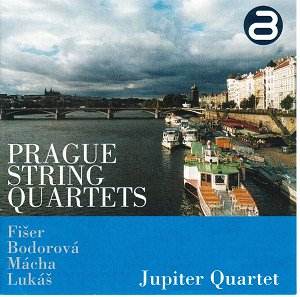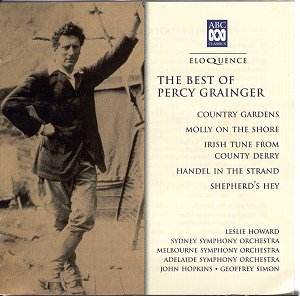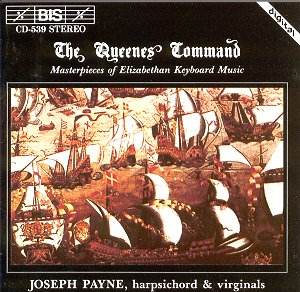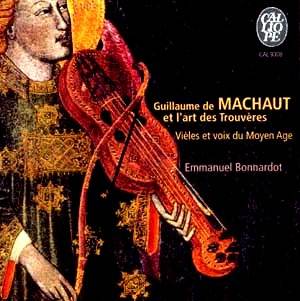 Composer: Various Czech Composers
Composer: Various Czech Composers
Works: Lubos Fiser – String Quartet (1986); Sylvie Bodorová – Shofarot String Quartet No. 4 (2000); Otmar Mácha – String Quartet No. 2 (1987); Zdenek Lukás – String Quartet No. 4 (1987)
Performers: Jupiter Quartet
Recording: Domovina Studio, Prague 2001
Label: Arco Diva
The recent release featuring the Jupiter Quartet showcases contemporary Czech string quartets, an intriguing exploration that builds upon the rich legacy of Czech chamber music from Dvořák to Janáček. The disc features works by Lubos Fiser, Sylvie Bodorová, Otmar Mácha, and Zdenek Lukás, composers whose connections to the country’s deeply rooted musical traditions are palpable. This recording allows listeners to engage with a modern perspective on the string quartet, one that remains accessible while still probing the complexities of the genre.
Fiser’s String Quartet, composed in 1984, opens the collection with its striking juxtaposition of materials, eschewing traditional sonata form for a series of interconnected blocks. The use of dissonance is deftly handled, with the tritone as a binding element that lends coherence to the work. The quartet navigates through memorable melodic motifs that return in transformed states, culminating in a jubilant affirmation of C major. The Jupiter Quartet performs this piece with a commendable clarity that highlights the structural logic of Fiser’s writing, allowing the listener to appreciate the inherent beauty in its intricate designs.
Bodorová’s Shofarot String Quartet No. 4 introduces a vivid sound world that draws heavily from Jewish ceremonial traditions. The movements, titled Teruha, Tekiah, and Shevarim, reflect the various ways of playing the shofar, translating these techniques into string textures. The work features a compelling balance of rhythmic intensity and lyrical expressiveness, particularly effective during the adagio, where the quartet’s use of glissandi evokes the haunting resonance of the shofar itself. The Jupiter Quartet’s interpretation here is particularly striking; their ability to infuse each movement with a sense of urgency and reverence exemplifies their musicianship, while the percussive effects employed add a vital dimension to the texture.
Otmar Mácha’s String Quartet No. 2, composed for the Smetana Quartet, presents a more dramatic contrast within its three movements. The ensemble adeptly navigates the modal folk influences that underpin the work, intertwining continuous motivic development with a rich tapestry of sound. The Jupiter Quartet’s performance captures the emotional breadth of Mácha’s work, emphasizing the tension and release that characterizes its structure. The technical precision displayed during the rapid passages and the nuanced dynamics in the slower sections underscore their command of the material.
Zdenek Lukás’ String Quartet No. 4, the most traditionally structured of the four works, follows a conventional four-movement format. Yet, it is steeped in Czech folk elements that breathe life into the familiar framework. The Jupiter Quartet executes the dance-like scherzo with infectious energy, and their ability to convey the lyrical beauty of the slow movement speaks to their interpretive depth. The integration of pedal notes and rhythmic ostinatos into the fabric of the quartet is handled with considerable skill, creating a sound that resonates with both tradition and innovation.
The recording quality is commendable, presenting a slightly close perspective that enhances the intimacy of chamber music while still allowing for a sense of spatial awareness. This engineering choice effectively captures the tonal blend and character of the Jupiter Quartet, whose vibrant sound recalls that of their illustrious predecessors in Czech string quartet history.
Each piece on this recording reveals the composers’ distinctive voices while simultaneously paying homage to the rich tradition of Czech music. The Jupiter Quartet, with their youthful vigor and refined musicianship, not only honors this legacy but also propels it forward, making a compelling case for the relevance of contemporary Czech chamber music. This disc is a significant addition to the catalog, confidently recommended for those seeking to explore the contemporary dimensions of this revered genre.



